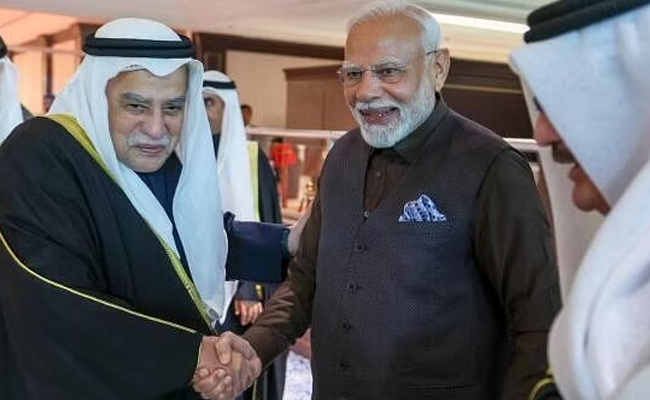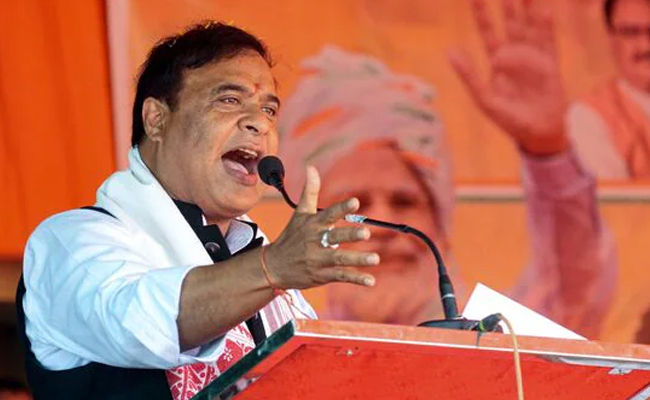New Delhi, June 1: In a major initiative to improve healthcare for women and children in low and middle-income groups, 100 innovators in developing nations, including 17 in India, will receive a seed grant of 100,000 Canadian dollars each, it was announced on Friday.
Funded by Grand Challenges Canada, with financial support from the Canadian government, the ideas to develop and test innovations aimed at addressing persistent challenges.
Grand Challenges Canada announced an investment of over 10 million Canadian dollars to develop and test innovations delivered by social enterprises, non-profit organisations, research institutes, universities, foundations and hospitals.
Over 4 million dollars is dedicated to 44 projects addressing sexual and reproductive health and rights, putting Canada's Feminist International Assistance Policy into action.
Proposed by institutions in Canada and abroad, the bold ideas embrace a range of creative solutions to empower the lives and improve the health of some of the world's poorest and most vulnerable women and children in Africa, Asia, Central and South America, the Caribbean, and Eastern Europe.
A total of 17 projects in India received grants to develop and test innovations aimed at addressing persistent challenges in women and children's healthcare.
The Research Institute of the McGill University Health Centre is looking to assist rural women in India with the creation of a personalised, accessible, data-driven, women-centric strategy for sexual and reproductive wellness and clinical care in the form of a wearable pendant.
This technology will track health data on menstruation, clinical signs, symptoms, body temperature and heart rate and display information with different coloured emojis.
The wearable pendant connects to a smartphone app to deliver wellness indicators to nearby clinical providers, where women can access self-controlled, high-quality tailored health services, using data to inform smart choices.
Such choices will inform their reproductive and sexual lives and reduce morbidity and mortality.
The All India Institute of Medical Sciences in Jodhpur aims to empower adolescents.
It says adolescents in India face barriers to accurate and constructive information about sexual and reproductive health and rights.
The "flipped classroom" provides sexual and reproductive health information via mobile app and allows students to study the material privately at home.
Class time is then used for questions, deeper learning, analysis, clarification and discourse with a skilled facilitator.
So is detection and monitoring heart disease in underserved women in India by Audicor Cardiometrics Pvt. Ltd.
The company has a tool which non-invasively provides four biomarkers of heart disease, in 10 seconds, and can be done at point of care in rural remote settings, for about one-third of the cost of traditional heart failure diagnostic services.
Non-profit organisation ARMMAN is implementing and testing a free teleservice in which counsellors guide parents of 960 children in Mumbai and New Delhi with severe acute malnutrition through direct calls on food, health and nutrition.
About six million young mothers in India face post-partum depression annually and as a result 20,000 women commit suicide, says BEMPU Health Pvt Ltd.
Its project aims to develop and test Bhappy; a low-cost screening tool for postpartum depression that is usable on any standard smartphone and categorises mothers as healthy, at-risk or needs attention in order for nurses to connect mothers to clinical assistance as required.
Remote parts of Indian mountainous states like Himachal Pradesh and Uttarakhand are still facing age-old menstruation taboos that force menstruating women to inhabit cramped sheds away from their homes.
Nyaya Health Nepal will combat this practice called Chaupadi in the Himalayan country.
Despite recent progressive healthcare policies, over 10 million Nepalis lack access to healthcare, due to fragmented infrastructures, a decade-long civil war, and the 2015 earthquake.
In India, women in many remote parts of the hill states are virtually ex-communicated when they are menstruating.
They are forced to sleep outside the house, in cattle-like sheds known as menstruation sheds.
The reason: A woman is considered "unclean" when she's bleeding or in a post-natal state.
The so-called "unclean" women, during their periods and after childbirth, are barred from touching cattle or men and they are even denied access to toilets, walking miles from their villages daily to take a bath.
Over the past seven years, Grand Challenges Canada's "Stars in Global Health" programme has provided $70 million Candian dollars to 661 projects, implemented in 87 low and middle-income countries over nine rounds of funding since 2011.
Let the Truth be known. If you read VB and like VB, please be a VB Supporter and Help us deliver the Truth to one and all.
Kuwait City (PTI): Prime Minister Narendra Modi on Saturday attended the opening ceremony of the 26th Arabian Gulf Cup as the chief guest at the Jaber Al-Ahmad International Stadium here, on his two-day visit to the Gulf nation, the first for any Indian prime minister in 43 years.
Modi is visiting Kuwait at the invitation of Kuwaiti Emir Sheikh Meshal Al-Ahmad Al-Jaber Al-Sabah.
The prime minister joined the Emir, the Crown Prince, and the Prime Minister of Kuwait in witnessing the grand opening ceremony.
The event also provided an opportunity for an informal interaction of the prime minister with the leadership of Kuwait, the Ministry of External Affairs said in a press release.
Kuwait was scheduled to play Oman in the opening game of the eight-team tournament.
Kuwait is hosting the biennial Arabian Gulf Cup with participation from eight countries, including GCC nations, Iraq, and Yemen.
The tournament is one of the most prominent sporting events in the region. Kuwait has won the tournament maximum times among the participating countries.
Earlier, addressing a large gathering of the Indian community at a special event ‘Hala Modi’ at the Sheikh Saad Al-Abdullah Indoor Sports Complex in the city, Modi praised the diaspora's contribution to global growth and said that India has the potential to become the “skill capital of the world”.
“Every year, hundreds of Indians come to Kuwait. You have added an Indian touch to Kuwaiti society. You have filled the canvas of Kuwait with the colors of Indian skills. You have mixed the essence of India's talent, technology, and tradition in Kuwait,” Modi said.
The prime minister expressed happiness about the presence of Indians from diverse corners of the country in the gulf nation and called it a “mini-Hindustan.”
Modi is set to meet the Emir, the Crown Prince, and the Prime Minister of Kuwait on Sunday.





